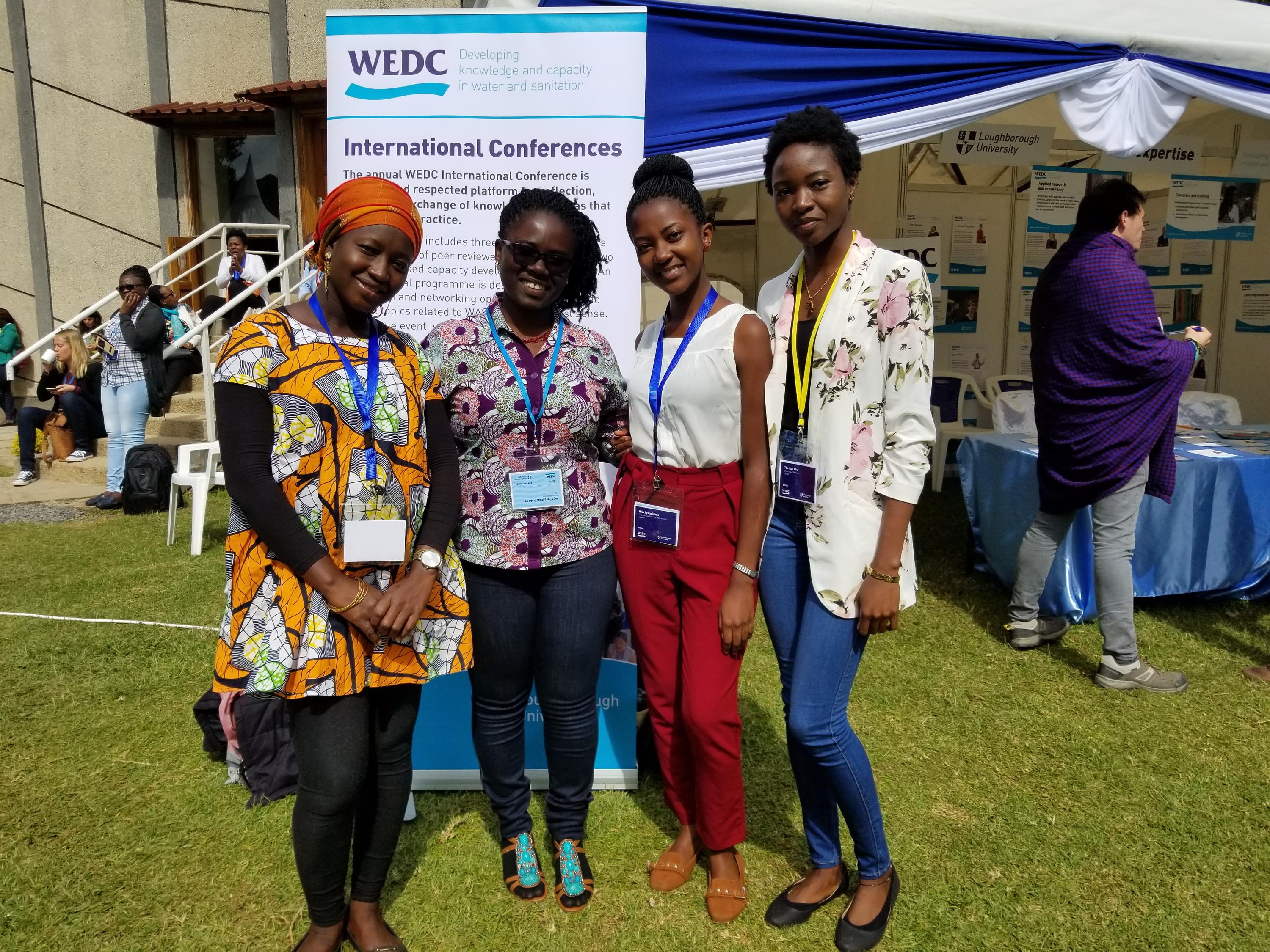The first time I heard about the Water Engineering and Development Centre (WEDC) Conference was in 2016 when I was an Intern in WaterAid, a Water Sanitation Hygiene (WaSH) International Non-Governmental Organisation (NGO) in Ghana. At the time, the conference was held in Ghana. The focus of this international conference is to provide Water Sanitation and Hygiene (WaSH) professionals a platform to continually build their capacity in the sector. Because of my interest in WaSH and health, I wanted to be a part of WEDC, although this did not happen for two years. So, you can imagine my excitement when my advisor Susan Elliott and her research colleague Lisa Guppy (United Nations University Institute for Water, Environment & Health) confirmed our registration for the 41
st WEDC conference in Egerton University, Nakuru Kenya. This would also be my first time in Kenya.
The theme for the conference, “Transformation towards sustainable resilient WaSH Service ” was completely in line with the aim of my PhD project which is essentially to explore how WaSH in health facilities are critical components of health systems, and can significantly contribute to the preparedness of health systems to withstand the shocks of emergencies (i.e., Disaster Risk Reduction), whilst still providing health services that are robust in the face of stressors common to the Horn of Africa. Our participation in the conference included a side event titled “Small Actions, Big Results: Can WaSH and risk reduction contribute to health system resilience (July 10, 2018).
Prior to flying to Kenya, we received information from the WEDC conference organisers about how cold the weather would be in Nakuru. I felt I survived the super chilly Canadian winter that just ended, and this might be easy to deal with. My first day at the WEDC Conference in Egerton University was super chilly, however, and a lesson that guided my choice of apparel for the entire conference.
One very interesting thing I noted was the level of diversity among the participants of the conference. It was so well attended by participants from so many different countries, organizations from NGOs to academia, government and civil society.
As part of our side event, four express presentations were given on the project by Dr Lisa Guppy, the state of WaSH in the horn of Africa by Prof. Susan J. Elliott, Disaster Risk Reduction in the Horn of Africa by Julius Kabubi from United Nations Ofice for Disaster Risk Reduction, Kenya and Health Systems in the Horn of Africa by Dr. Diana Karanja from Cohesu, a local NGO Participants deliberated on three themes based on their interest and area of expertise using the ‘world café’ style (i.e., WaSH and Disaster Risk Reduction (DRR) at health centres, DRR and health/health systems, and WaSH and health/health systems. For each theme, the discussions were centered around what we know currently, what we don’t know, and what do we know in Kenya.
Prior to the side event, we anticipated having at most 10 - 15 people participating. To our surprise, we had an overwhelming number of about 30 people from different international NGOs such as Save the Children, GOAL (spell this out) and WaterAid as well as researchers from Leeds University, London School of Hygiene and University of Kwazulu-Natal as well as officials of the ministry of Health, Kenya and civil society organisations. All made fabulous contributions to the conversation, much of which was capture in notes by notetakers for summarizing in a final report. Some of the issues raised included: lack of health system, WaSH and DRR nexus, poor data management, risk mapping, prioritization challenges and pre-allocation of roles.
In general, there were so many sessions to attend for both oral presentations or workshops. I was not able to attend them all. Among them were disaster monitoring and water security. I learnt more about WaSH and health and what other participants have been working on in the field. Interesting presentations on “emotional wellbeing as a proxy indicator for measurement among pastoralists in Afar, Ethiopia” by Cooper et al. and “addressing challenges of water resilience: a study of water security risk in pastoralist households in Kenya” by N. Balfour & C. Mutuku. Both these presentations raised concerns about the differences in WaSH prioritization for the communities being engaged.
In summary, the WEDC conference not only afforded me the opportunity to learn but a space to network, meet old colleagues and make new friends in the field of WaSH and health. It is a conference that informs about current WaSH projects and strategies, especially in developing countries. The WEDC conference was a great learning opportunity for me and I look forward to sharing my research work in the future.



